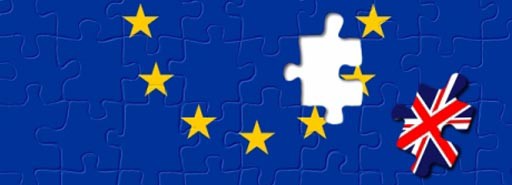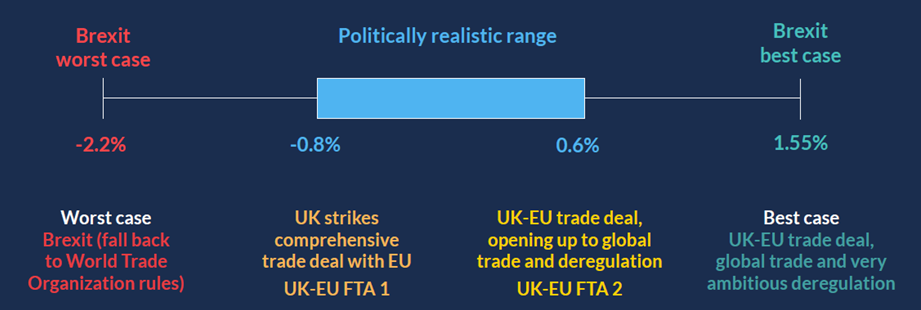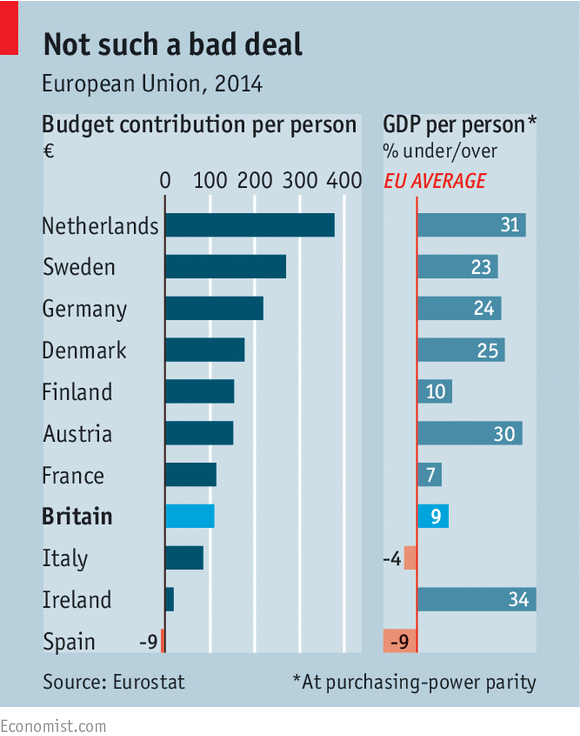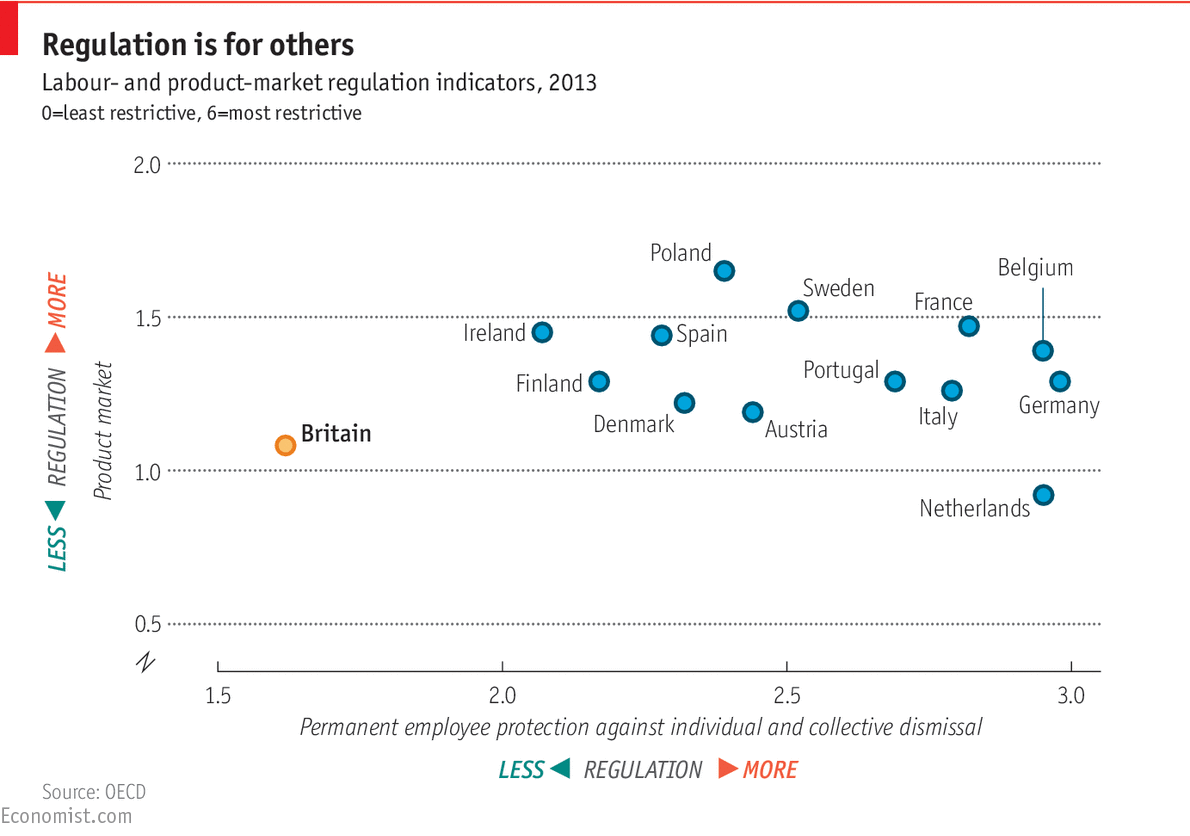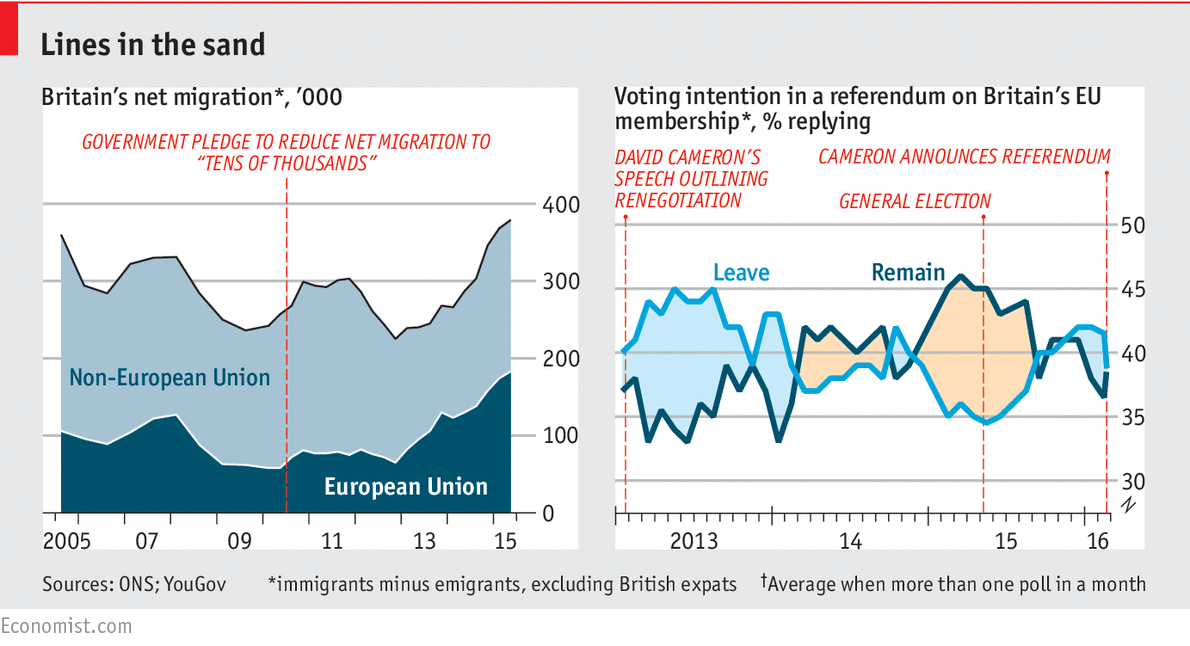Will the United Kingdom Leave or Remain in the European Union?
![]()
In recent years, there has been heated rhetoric in the United Kingdom (UK) about whether to stay in the European Union (EU). If all goes as planned, Britons will vote June 23 on a referendum about whether to leave or remain in the EU.
In 1973, Britain joined the European Economic Community (EEC). Over the years, this regional alliance has expanded its presence in Europe, and now has two distinct blocs: the European Union (EU), which is comprised of 28 member states and the Euro zone (Euro area) which is comprised of 19 of the 28 EU states. The EU has been expanding its powers to include not only economic, but political and social regulations as well. Some British citizens worry about the direction Europe is headed and believe the EU is an encroachment on their sovereignty and their democracy as a nation. Other citizens appreciate the ability to move goods and themselves within the EU without restriction.
Trade. This is the biggest unknown of the equation. Perhaps the UK will be used as the “whipping boy,” as the EU tries to discourage any other country from leaving the bloc. On the other hand, Britain’s hands will not be tied, as they strive to work out trade deals that are more flexible and beneficial to their country without all the additional EU regulations. An extensive report has been issued by Open Europe, a non-partisan and independent policy think tank that projects the most likely economic outcomes to be in a range of -.8% to .6% of GDP by 2030.[1] What price is the UK willing to pay to maintain their sovereignty and democracy?
Influence & Budget. By the leaving the EU, Britain will lose some influence in Europe. However, this would give them an opportunity to join other international organizations. Pursuing UK-specific free trade agreements will be time-consuming and costly, but reducing the payment to the EU should free up some room in the budget. Currently, Brussels receives £350 million from Britain each week, which equates to roughly half of the educational budget of the UK. When figured per capita, it is not as high as many other countries in the EU pay. (See chart “Not such a Bad Deal”)
Regulations. Regulations passed by the EU have made the UK wary of the future. In particular, the EU realizes that in order to make the Euro zone work, there must be closer political ties. The UK is not willing to concede much political power to the EU leadership. A key concern is keeping their labor market competitive (See Chart “Regulation is for Others”). They keenly feel the loss of sovereignty when EU courts can judge between European nations and determine who is at fault. Because Britain does not have the Euro as their currency, regulations affect their country differently than others in many instances.
Should the UK remain in the EU, they will use their second largest economy status to strongly influence regulations. The British leadership will remain a force to keep regulations reasonable and work for what is better for all countries involved.
Security. Brexit is a very emotional subject, and the general population can be swayed by the current state of affairs dramatically. If you look at the chart “Lines in the sand,” you will witness how sentiment about leaving or staying ebbs and flows. In the wake of the Brussels bombings and French massacre, Britons are rightfully concerned about their personal safety. London is a primary target for possible terrorist incidents.
Does anyone in Europe really care if the United Kingdom stays in the European Union? In the chart you can see that responses vary by nation. (Chart “The Apathy and the Ecstacy”)
The good news is that the EU and the UK both see the value of working things out. As the EU’s second largest economy (after Germany), the UK does and should wield power over the direction of the bloc. Recently, Prime Minister David Cameron has influenced the EU to grant some power back to sovereign governments. Particularly important is each country’s right to simplify and reduce taxes when advisable. Regulations must be beneficial for all businesses and countries. Countries must have the flexibility to respond to terrorist threats within their own borders swiftly and decisively. Bottom line: the EU must expand on what has worked and grant power back to the individual countries for those policies that have failed miserably. Only then will a BREXIT be avoided!

